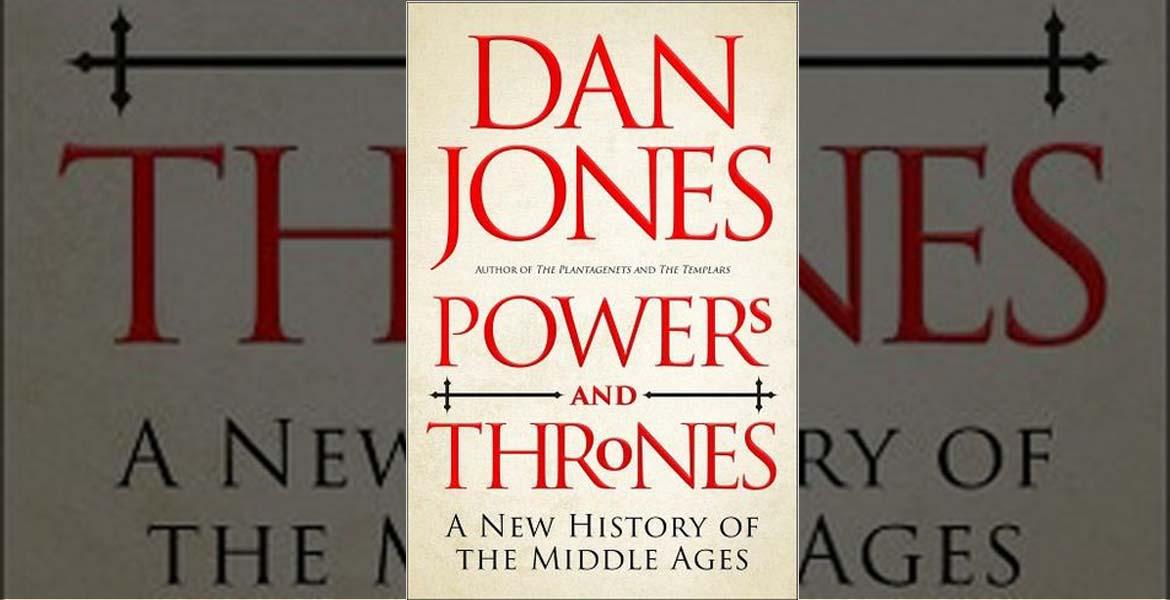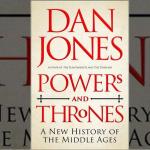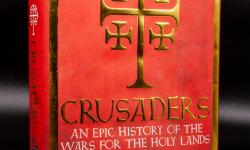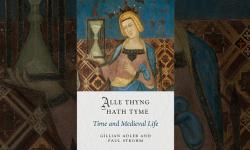Powers and Thrones, Dan Jones
In his new book, Powers and Thrones: A New History of the Middle Ages, Dan Jones presents a truly epic history of Europe and beyond, spanning everything from the heights of the Late Roman Republic to the depths of religious division during the ReformationThe split from the Roman Catholic Church of protestants, inspired by people such as Martin Luther, John Calvin, and Huldrych Zwingli., neatly sandwiching the text between two sacks of Rome. Although containing a clear political thread, the narrativeA story; in the writing of history it usually describes an approach that favours story over analysis. goes far beyond the usual to consider the impact of other forces, man-made and natural, on history. As well as the standard power struggles of emperors, monarchs and tribal leaders, there are the forces of pandemic, and of climatic and demographic change; there are the consequences of intellectual and commercial decline and rejuvenation; and there are the cultural influences of religion, conquest and travel. The result is an all-encompassing account of humanity throughout the Middle Ages.
With so many impersonal factors, one might expect a rather dry book, lacking the colour of high politics and tales of derring-do. This couldn’t be further from the truth. Jones has brought his usual engaging style to bear, peppering the text with amusing commentary and mini portraits. The eternally charming William Marshal makes an appearance, as do Enrico Dandalo, Caracalla, Ragnar Lodbrok, and Dick Whittington. Many of the characters – and a few (sub)chapter headings – are known from Jones’s previous works, and he draws from and condenses this wealth of experience and research into a number of charming précis. Once again, the sources he employs are predominantly printed – hardly surprising given the mammoth research task he has set himself – but primary sources account for about half of the bibliography and range from Herodotus to Luther. This is combined with archaeological evidence, analyses of art and architecture, and scientific data. Taken together, they blend into a balanced and riveting story of continuity and change.
Many of Jones’s examples come from the British Isles, but this is a much more wide-ranging book than anything that’s gone before. Among the individual tales, there are the likes of St Martin, who miraculously exorcised angry cattle, El Cid, the Iberian champion of a new form of knighthood, and the Portuguese prince and explorer known as Henry the Navigator who introduced the Madeiran grape stock to the island that bears its name. Most of these are European – the only significant exceptions being those concerning the Islamic and Mongol empires – but as Jones states in his introduction, this shouldn’t really be a surprise. After all, the very term ‘the Middle Ages’ is based on a western viewpoint and, as the author was raised and educated in the UK, it makes sense to play to one’s strengths. And this is absolutely what Jones does.
As with any book of this size and scope, it can only provide a whistle-stop tour. Powers and Thrones is a rollercoaster ride through the Middle Ages, and, like a rollercoaster – and despite its length – it’s over far too quickly, leaving the reader feeling a bit breathless. In order to appreciate it fully, one is compelled to take the ride a second time. For there is so much to be absorbed: the sheer quantity of history addressed in astounding. Of course, few things are discussed in any depth and many significant historiographical debates are dismissed with a 'that need not concern us here' – although there are some arguments into which Jones does wade, and he does this with a verve and confidence that was lacking from some of his earlier work. But in describing the thousand-plus years covered in this book, without going into every tiny detail, Jones is making the case for a return of the grand narrative that enables us to see the bigger picture, the overriding tides of nature and time that pull people ever so slightly in different directions. In some ways, the concerns of our ancestors were not entirely dissimilar to our own, and the threats and opportunities with which they were faced can show an uncanny resemblance to today: the Roman military machine is perhaps presciently compared with that of modern America; the lasting legacy of the ‘hammer’ of the ‘Saracens’, Charles Martel, is placed within the ideological frameworks of current right-wing groups.
This ongoing point about the relevance of the medieval – and indeed of all history – to today can occasionally be in danger of straying into the realms of a polemicA strong verbal or written attack on someone or something. on the necessity of history. Jones is, of course, not the only writer to do this of late: given the pressure put on humanities subjects by the government and academia, it is only to be expected that professionals are jumping to defend their subject. But unlike some other authors, there is no rose-tinted vision: the ‘real and profound differences’ – the brutal realities of conquest in every society, the endemic nature of slavery, the various ‘isms’ inherent in past cultures – are all discussed. And it is here, in the subtle comparisons, that Jones makes his most astute political points. His writing, while always having been accessible and entertaining, is now also mature, thought-provoking and convincing. His grasp of subjects – covering archaeologyThe study of the things humans have left behind. See 'Some Notes of Archaeology'., ancient and early modern history, and the specialist disciplines of art, military, and scientific history, to name but a few – is impressive. His ability to see and unpick the threads of history, to tackle those essential big historical questions, and to reweave them into one (substantial) volume is extraordinary. Powers and Thrones is nothing short of masterful.
- Log in to post comments






